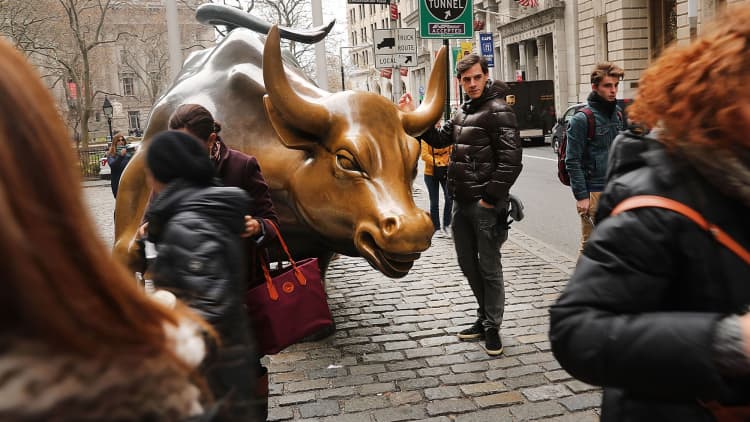
The Dow Jones Industrial average fell 204 points Thursday in its first drop of that point magnitude or greater since a 373-point shellacking in May. Before that, the benchmark had only fallen more than 200 points one other time this year, a 238-point drubbing on March 21.
This has been such a calm bull market that there's been only five single-day declines greater than 200 points by the Dow in the last 12 months.
Using hedge fund analytics tool Kensho, CNBC looked at what happened during the day and week following those five sell-offs. Here is what the Dow did the next day, on average, and its top winners and losers.
Here's its average performance one week out and top winners and losers:
The Dow was up 100 percent of the time one week out. (And note Apple leading the bounce again.)
So this "buy-the-dip" market has earned that mantra.
But some investors who have "bought the dip" recently are changing their tune this week because of new factors like over-the-top bullishness and the North Korea war of words initiated this week by President Donald Trump.
Doug Ramsey of The Leuthold Group believes a sell-off amounting to about 8 percent is ahead, citing seasonal weakness that typically comes around this time and an irrational surge in bullish sentiment.
"Conditions have slipped into place for at least a short-term correction," said Ramsey, the CIO of the firm.
Jonathan Krinsky, chief market technician at MKM Partners, wrote in a note to clients Thursday morning that, "While the major indices continue to give a sense of calm above the surface, there is a growing list of negative divergences."
And he cited the seasonal weakness as well, displaying this chart in his note:
Source: MKM Partners, Bloomberg
So some investors and market observers believe this could be the end of that buy-the-dip mentality.
— CNBC's parent NBCUniversal is a minority investor in Kensho.
WATCH: Stocks hit session lows



